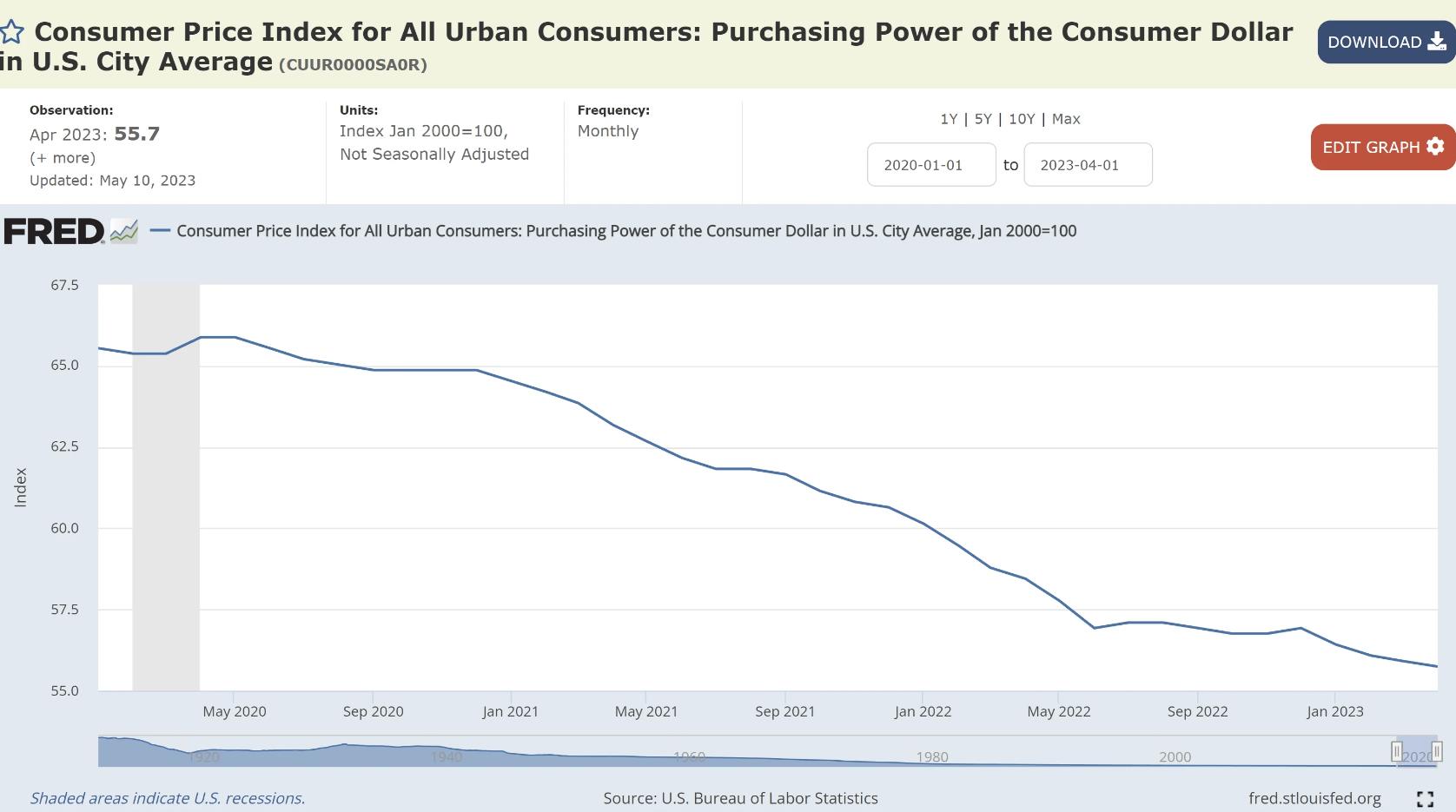Remember, CPI tracks the loss of the purchasing power of your dollars, and thereby the purchasing power of your hard earned labor.
Source: https://fred.stlouisfed.org/series/CUUR0000SA0R
Let’s zoom in on this since 2020:

CPI tracks the loss of the purchasing power of your dollars, and thereby the purchasing power of your hard earned labor:
- April 2022 purchasing power: 58.4 (down -4.62% in purchasing power in the last year!)
- April 2020 purchasing power: 65.9 (down -15.5% in purchasing power in two years!)
TLDRS:
- The Consumer Price Index (CPI) is a measure that helps us understand how the average price of a basket of goods and services has changed over time.
- In other words, it’s an indicator of inflation, or the increase in prices over time.
- When I say that the purchasing power of your dollars has decreased, I’m talking about how much less you can buy with the same amount of money due to rising prices.
- The purchasing power of your hard-earned labor is eroded by inflation!
- For example, imagine you have $100 today, and you decide to save this money in cash instead of investing it.
- Fast forward a year, and the CPI indicates that there’s been a 6.9%% increase in the average price of goods and services.
- This means that the things you could buy with your $100 last year would now cost $106.9.
- The value of your dollars has decreased, and your purchasing power has dropped.
- To avoid this loss in purchasing power, many investors choose to put their money into assets that are expected to appreciate over time.
- These investments aim to counteract the effects of inflation and help maintain or increase the purchasing power of your money.
- GameStop’s Q422 Results have them positioned to succeed in this environment:
Net Sales: $2.2BCash Flow from Ops: $337MNet Income: $48MCash + Equivalents: $1.39BLT Debt: negligible